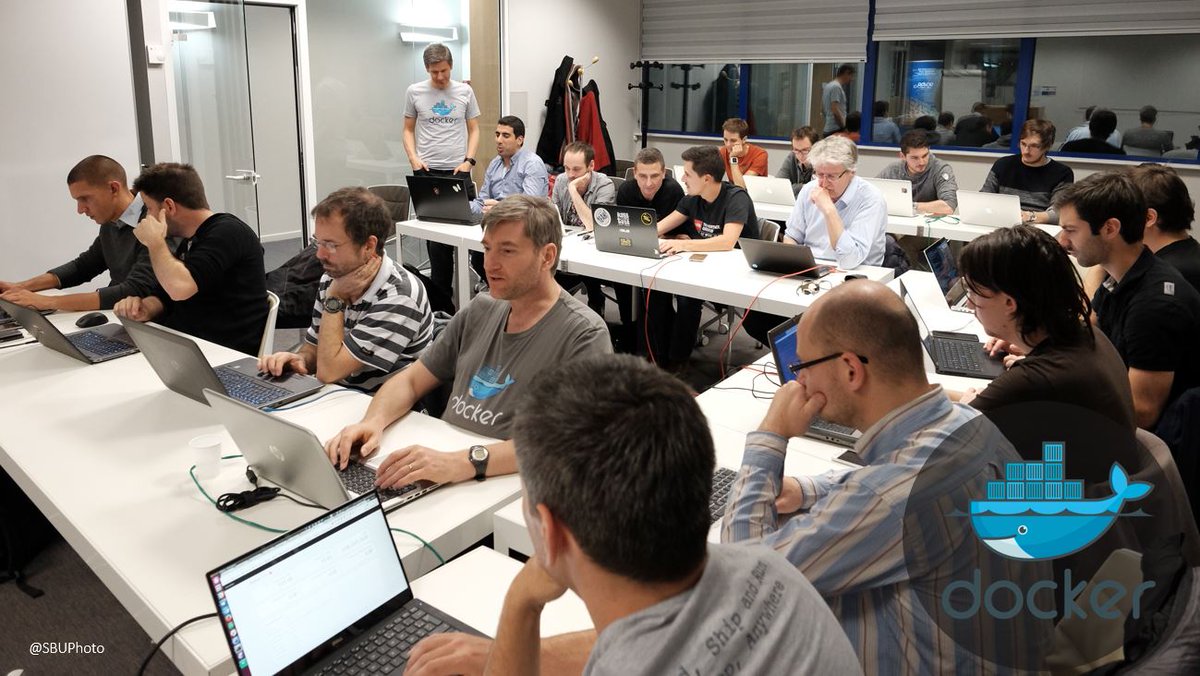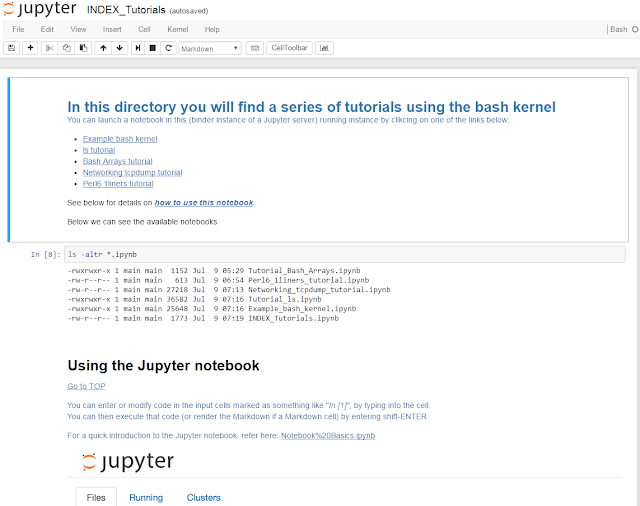So much has already been said about DockerCon 2017 and the many announcements so I won't go there, I'm way too late ... but here's a short (oops ! long !!) post on my trip to DockerCon in Austin, TX at the end of April.
So here is a more personal account of DockerCon which for me was a fantastic event full of opportunities.
As mentioned in this "
Unikernels, Unikernels, Unikernels ... DockerCon !! post, I really appreciate the support I received from many people starting with my wife Paulina, as it was not in easy circumstances.
As I tweeted I really appreciate the community that Docker Inc. have built around Docker (Moby), Meetups, Docker Captains and they go out of their way to be inclusive - everyone has a role to play and it is valued.
I appreciated the hand-written card I received as a thank-you as a speaker, I was equally impressed to see Docker employees also receive hand-written thank-you cards for their efforts - e.g. Amir for his Moby Mingle contributions.
DockerCon 2015
This was my second DockerCon, having been lucky enough to attend DockerCon 2015 in San Francisco.
That was a fantastic event, that I was so lucky to attend especially as expenses were covered by Docker after winning the "
Docker Paris Hackathon" in Dec 2014 with Mario Loriedo - and I should point out that Mario was the brains behind that Hackathon win with "our
Sublime Docker" entry.
I really enjoyed DockerCon 2015, able to attend the pre-conference Hackathon (my
proposed entry, "The Phedds" from the @PhenomalDocker team, and the
resulting hack). That was a great opportunity to make contacts before the conference and the conference itself was really interesting - my best conference so far.
I mention all this just to emphasize that DockerCon 2017 was even better in my experience crammed full of events and possibilities to meet people and make interesting contacts.
DockerCon 2017 - VIP reception
It all started with a missed connection at Houston which I thought would make me miss the "VIP reception" for speakers on the Monday evening, but thankfully as I dropped my suitcase in my Austin hotel room at 20h35 with only 25 mins left to find the venue and attend I figured it was worth it ... in my quest for contacts in the Docker eco-system ..
Not easy joining a party in full swing but thankfully Victor Coisne the Docker Community Manager saw me and said hi ... just as I was leaving ... that made all the difference, so I stayed a while meeting a few people such as Docker Captain Dan Finneran of HPE - we work in neighbouring teams, Mano Marks and several others. A great start to DockerCon.
Before DockerCon 2017 - I can't sleep so I have to run ...
I love to run or cycle when I travel ... usually cycling is impractical (though I remember a crazy ride downtown HongKong and then around the Island one time ... but it had taken a while to find somewhere to rent a bike).
I love discovering a place like that and now I use runtastic to capture the experience, it's nice to browse through my runs seeing where I've been ... the last 4 runs have been Austin, Montreal, Madrid and Grenoble ...
Jet-lagged, I went out for a run at 6am. It was pretty dark even on the way back before 7am so it was a little dangerous in the park - almost fell going down a step I didn't see. I was amazed at the number of runners I saw, some of them sensibly running with headlamps strapped to their forehead.
DockerCon 2017 - Moby Mingles
Docker introduced the concept of Moby Mingles for this conference allowing anybody to propose a subject to discuss in 1-1 meetings. I would have proposed something in Unikernels but of course Amir of the MirageOS team had already done that.
There were many interesting subjects proposed but the three I was really interested in were the three proposed by Amir: Unikernels, FaaS (functions as a service) and IoT. In the end I settled for Uniikernels as this was a golden opportunity to exchange with Amir prior to my presentaton the next day. He invited Johnny Mkhael along also, this was great as Johnny and I had some interesting talks and as he is Paris based we hope to meet in the future - especially as he lives in the same town as my Chilean sister in law, Marcela.
Johnny impressed me by his blogging on
http://jmkhael.io/ straight away at DockerCon, I could learn something from him ;-)
DockerCon 2017 - the conference ...
Then of course the conference itself started with the keynotes.
I didn't intend to attend many of the presentations as I figured it would be better to spend time either meeting people, looking at the booths and preparing my own presentation !
I did attend both days keynotes which I really enjoyed - for me the announcement of LinuxKit was really important.
I also attended Abby Fullers (Amazon Developer Evangelist) "Creating Effective Images" and Brendan Greggs (Netflix) excellent "Container Performance Analysis" talks.
DockerCon 2017 - My Unikernels presentation
I was surprised to discover that the 20 minute "community" presentations would be in part of the exhibition area rather than in a separate room. Learning this I immediately decided to not attend any of those sessions feeling that they would be difficult to follow because of the background noise of the exhibition area. Nevertheless as a speaker I didn't have any problem and felt at ease presenting to a sea of faces and I didn't even think to estimate how many people were attending ... 100 maybe?
I'd looked at the agenda and decided I could overrun my 20 min slot if needed which I did, though when I stopped at 29 mins and opened for questions they cut the mike ;-) Nevertheless, I was pleased that several people remained and we discussed for 15 to 20 mins.
I was very pleased over the following days that several people came up to me with positive comments on my presentation - I think this is more that there is a thirst for information on Unikernels today - and I had the chance to meet more MirageOS team members such as Mindy Preston and Heidi Howard (a string believer in Unikernels - a Univ. of Cambridge post doc. rather than MirageOS team member i think).
I was also contacted by Per Uber the CEO of IncludeOS who wanted to discuss about their product. We had some very interesting discussion. IncludeOS is not a legacy OS as shown in my slides - not a very wise move calling any active project "legacy" of course.
DockerCon 2017 - the exhibition area
After my talk I was pretty pleased to be able to unwind a little and spent some time browsing the different booths, collecting a few t-shirts along the way.
Actually, my favourite t-shirt was the HPE/Docker t-shirt for it's very quiet tone ... black t-shirt with small HPE and Docker logos makes this quite a wearable t-shirt - not just another pyjama top !
DockerCon 2017 - The internals summit
The internals summit was held on the Thursday and was a great chance to meet Docker employees, Docker captains and organizers and others. The goal was to learn about specific Docker, or should I say Moby projects ...
In the afternoon we had different breakout sessions and so I chose to join the Unikernels group initially where we had very interesting disucssions lead by Amir Chaudhary.
I really appreciate how Amir is making efforts to federate the Unikernels community across diverse technology implementations.
I was also very pleased to get the chance to meet Matt Bajor, who's presentation "Look Ma, no OS!" I'd watched and briefly Idit Levine creator of the Unik project.
I later attended the LinuxKit/Infrakit session but joined the session a little late.
DockerCon 2017 - The organizer summit (in parallel with the captain's summit)
On the Friday morning there was an organizer summit, a great opportunity to meet other organizers and discuss what works, what doesn't in organizing meetups and to here from Karen Bazja, Lisa McNicol and Victor Coisne about plans for future organizer community events.
It was appreciated that the meeting ended with a lunch which we shared with the Docker Captains ... a great way to meet more people, in particular I finally got to chat with Alex Ellis.
The journey home
Unfortunately a delayed flight from Newark to Montreal meant an unplanned stopover in Montreal.
The good news was that I managed to change the flight AirCanada were proposing (from a 3 flight periple Montreal-Toronto-Munich-Lyon taking 15 hr to a direct 7hr flight to Geneva) allowing me to have a nearly full day in Montreal before leaving.
Not wanting to take too many risks I headed to Mont Royal and had a nice run before wisely heading back to the hotel to get my bags and off to the airport.
A panoramic view from Mont Royal
I wouldn't have chosen the delay, but this was a nice few hours recompensation ...





























